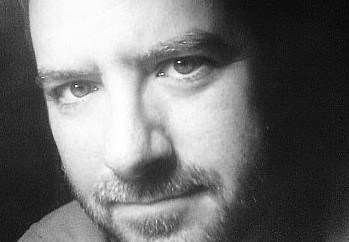
Three Lenses That Distort Your Reality – and how to bring them into focus! ( Part 2)
(Part 2 of 3)
By Steven Reeder, CPC, ELI-MP
Part 2 – Interpretations
When we get our eyes checked and look through the phoropter, the eye doctor can turn and flip what seems to be an infinite number of lenses to change how we see the world (or at least the eye chart.) In our lives, there are three specific types of mental lenses that affect how we see and create our own reality. First we discussed Limiting Beliefs [see Part 1.] Now, let’s discuss the second lens: interpretations.
Just as the word implies, interpretations are subjective conclusions we make about the words, people and events we encounter. We can form an interpretation about someone’s actions when we have little information on which to base our conclusion. For example, if a friend tells you, “I’m upset with you,” that’s not open to interpretation. However, if that friend fails to call you on the phone at an appointed time, you can make interpretations about why you weren’t acknowledged. It could be they literally forgot to call, or because they were preoccupied with their thoughts and missed the time, or because their phone died, or they are on an emergency phone call with someone else, or they’re upset with you and don’t wish to speak. Any one of these could be true, but you won’t know for sure without asking that person. Choosing one interpretation without asking and accepting it as true can be cause for lots of unnecessary grief.
We can easily interpret signals such as body language and facial expressions people make in our presence. We can also get it really wrong when we do so. At rest, my face tends to look very serious. Strangers often think I’m stern or even unapproachable when I’m heavily concentrating on a task. I’ve also been attributed with having an intense gaze with my eyes of mixed gray and hazel. Truthfully I may have no idea what face I’m making at any given moment, much less how it’s being perceived. If someone wishes to interpret my facial expression with no context, they do so at their own peril and my amusement. I’m amused, that is, until someone cuts me off in traffic, then I’m the one who’s upset, because I know they did so just to insult me. No one is immune to flawed interpretation.
Some people even go so far as to construe natural events as having personal interpretations. How many times have we been told that some natural event or calamity has taken place because of the wicked behavior of some of our planet’s residents? This may seem an extreme example, but it is a valid example of someone deciding that they are certain of the intention behind an event (in this instance, nature) because their interpretation is the only valid and accurate perspective, and thus the only one that need be considered.
Change Your Life thru Coaching
If you think you’re caught up in an interpretation that limits your options, consider the following questions: what is another way of looking at this situation? What might be the completely opposite view about this scenario? What are five other possible interpretations? What would someone else close to me say about what happened here?
One more thing: as I hinted in a prior article [see The Reality You Didn’t Mean to Create!], our process of creating our own reality stems from our thoughts, feelings and results/actions combining to form the declaration of who we are. As you review these thought patterns and recognize them in your life, consider the feelings that result from these three thought patterns, and how those feelings drive your actions, and the results they produce. Ask yourself: are you pleased with the results? If not, what new thought could plant the seed for a different result? Take time (and a deep breath,) get quiet, and reflect.
Next time, we’ll discuss the dreaded lens of the Inner Critic.
Steven Reeder, CPC, ELI-MP
Two things in life strike him to the core: rock and roll, and personal growth and development. Electric guitars move his outer body, while the pursuit of wisdom and discernment moves his inner body. Fluent in the work of Caroline Myss, Neale Donald Walsch and Bruce Schneider’s Energy Leadership, Steven is best known for taking all this information and synthesizing it into practical, tangible material that is immediately applicable to life for instant impact. Steven combines his knowledge of the metaphysical and the practical to create a unique approach to helping you create your best life. Steven is an Energy Leadership Master Practitioner and Certified Professional Coach. You can contact Steven at http://stevenreeder.com/





